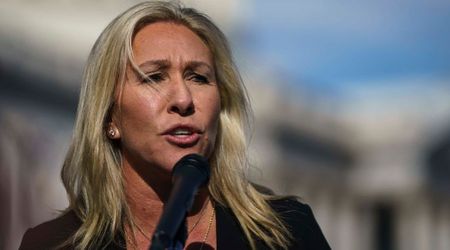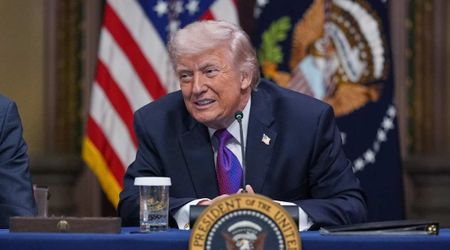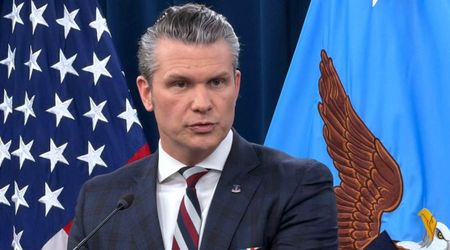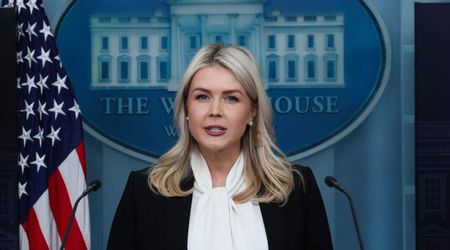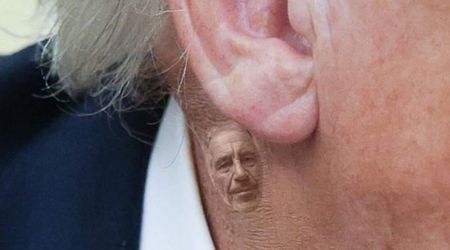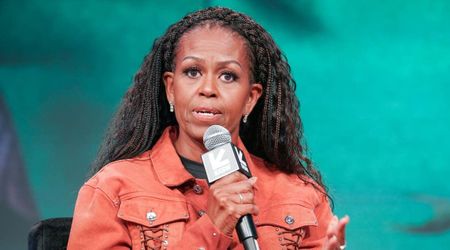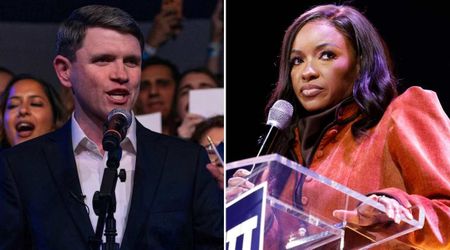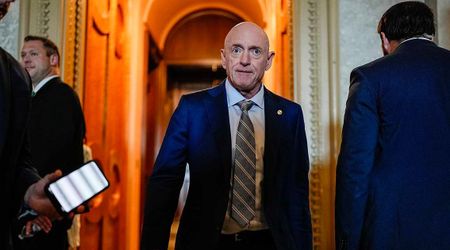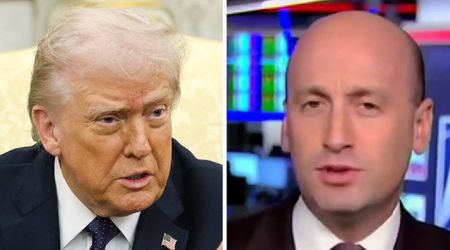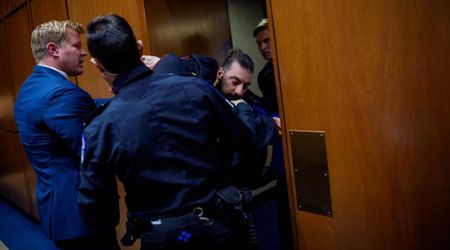Why there is little chance Donald Trump will be able to reverse hush money guilty verdict
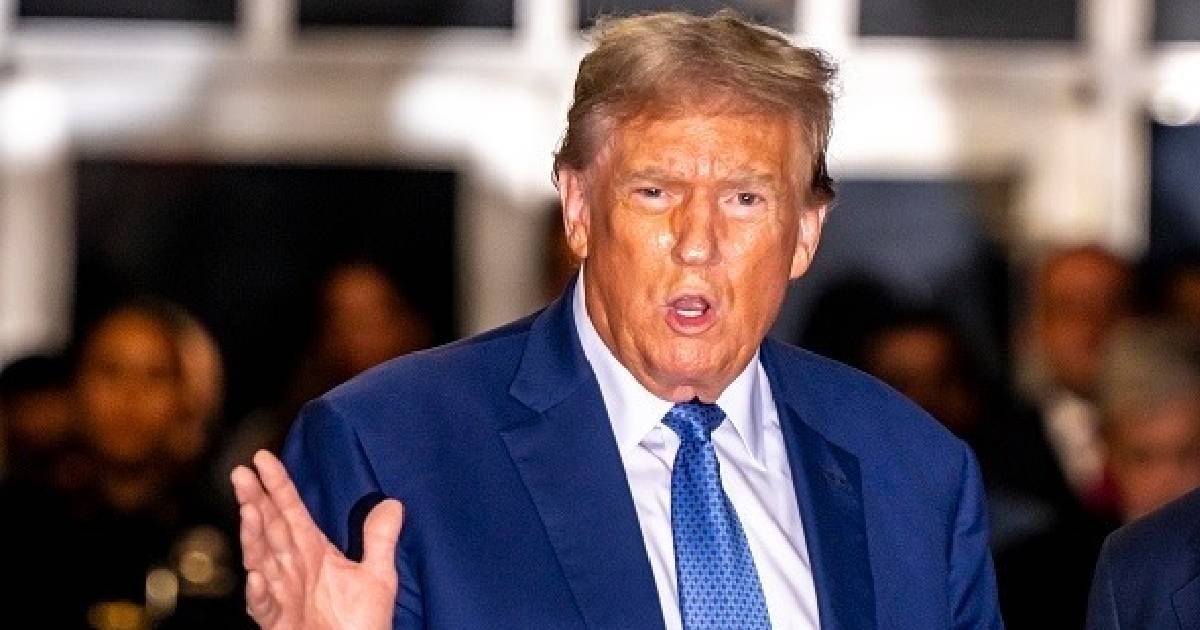
MANHATTAN, NEW YORK: Former President Donald Trump's legal team is preparing to pursue an appeal following his felony conviction in the landmark New York hush money trial.
On Thursday, May 30, a 12-person jury bench unanimously found him guilty on all 34 counts related to the falsification of business records to conceal a hush money payment made to Stormy Daniels.
Trump's sentencing, scheduled for July 11, will trigger a 30-day window for the former president to initiate the appeal process, according to Daily Mail.
While an appeal is anticipated, legal experts foresee significant challenges ahead for the presumptive GOP presidential nominee when it comes to navigating the Manhattan criminal court system.
Barry Kamins, a retired judge and Brooklyn Law School professor told The New York Times, "This is all uncharted territory, as far as an appellate issue. I certainly don't think there has been a prosecution of falsifying business records like this one."

Donald Trump's course of action following the historic felony conviction verdict
On Friday, Trump pledged to fight his conviction and listed two issues that his lawyers will argue on appeal, the site of the trial and the judge presiding over the case.
"We wanted a venue change where we could have a fair trial. We didn't get it. We wanted a judge who wasn't conflicted," said the MAGA figurehead.
According to Mark Zauderer, a New York lawyer and member of an appeals committee, Trump's legal team will have a difficult time appealing based on the judge's decision. He claimed, "This case has none of the usual red flags for reversal on appeal. The judge’s demeanor was flawless."
During the extended five-week trial, prosecutors presented a narrative outlining Trump's alleged involvement in an attempt to influence the 2016 presidential election by covering up a $130,000 hush money payment orchestrated by his then-personal lawyer, Michael Cohen, to silence Daniels.
She claimed to have engaged in a sexual encounter with the former POTUS a decade prior, an assertion which Trump has repeatedly denied.

The trial also shed light on the questionable "catch and kill" malpractices of the National Enquirer tabloid, which purchased potentially detrimental stories about then-presidential candidate Trump and subsequently suppressed them.
Moreover, the prosecution argued that the reimbursement checks signed by Trump to Cohen, which were recorded as legal expenses, were falsely labeled to conceal the hush money transaction.
In defense, Trump’s attorneys claimed that Cohen had indeed performed substantive legal work for the real estate magnate and his family, justifying the payments.
The former POTUS' legal team may also seek to challenge the assertion that Trump caused a fraudulent entry in the records of "an enterprise" by arguing that the documents in question were personal in nature and did not belong to his company.
Furthermore, they could challenge the legal theory related to the election law conspiracy crime, requiring the judge to provide intricate instructions to the jury.
On the topic, Nathaniel Z Marmur, a New York appellate lawyer, noted, "The more complex the jury instructions, the more likely they are to bear appellate issues. And these are some of the most complex instructions one could imagine."
In the wake of his 34-count conviction, Trump's next legal recourse involves seeking redress from the Appellate Division, First Department, to overturn the decision.
After the Appellate Division's ruling, either party, the former POTUS' legal team or the prosecution, may petition the New York Court of Appeals, the state's highest court, to review the felony conviction verdict.

Appeal process unlikely to be over before the November election
The final option for Trump's legal team would be to appeal to the United States Supreme Court to consider the case.
"This is a garden-variety state court conviction, I don't see a plausible path to the Supreme Court," claimed Zauderer.
The former POTUS' legal team is still considering the possibility of appealing the case to the US Supreme Court, which has previously agreed to review his claims of presidential immunity in the Washington, DC election interference case.
However, any potential appeal process is unlikely to conclude before the 2024 election, where Trump, the presumed Republican nominee, will once again face President Joe Biden.
The incumbent addressed the potential appeal from his predecessor during a speech at the White House, emphasizing the importance of respecting the judicial process and criticizing Trump's characterization of the trial as "rigged."
Biden underscored that Trump has the "opportunity to appeal that decision just like everyone else has that opportunity. That’s how the American system works."

